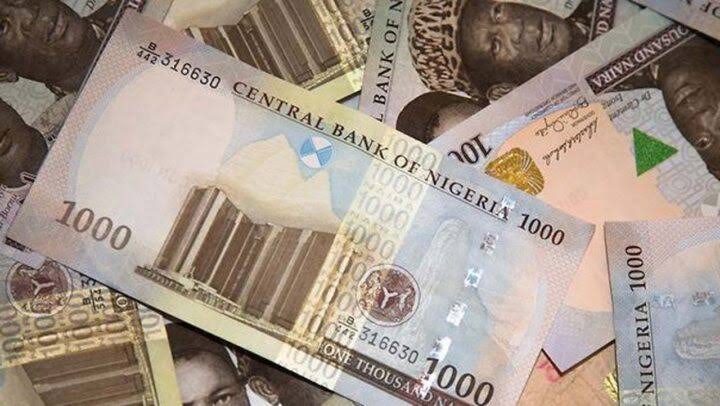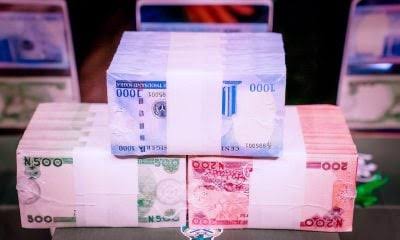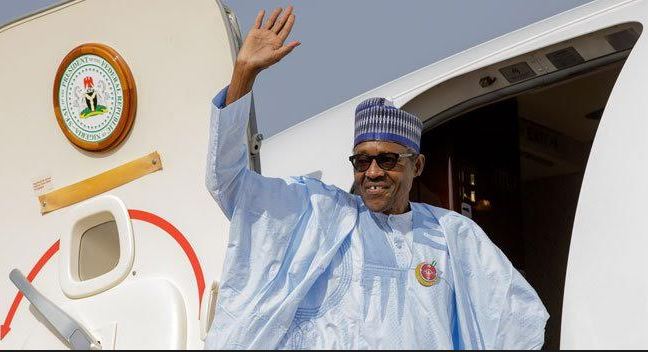By: Salako Tijani
Out of several rationale, presented by the CBN, on the aim of introducing cashless policy to Nigeria economy, decade ago, was succinctly, to combat the inflation challenge, reduction of physical money in circulation, and maintaining a healthy economy growth,
However, the invention of the cashless policy as cited by the CBN was to, also encourage more electronic based transaction for individuals and corporate firms that transact beyond the CBN prescribed withdrawal limits .
Meanwhile, the Karl Marx theory of money, develop a comprehensive concept of money integrating, its various functions and emphasizing the socio-economic basis of its existence.
The theory further stated that “Money performs different functions including a measure of value, means of purchase or exchange, means of payment, and a means of hoarding, which are independent of money’s concrete forms.
“The functions of money as a means of purchase and means of payment relate to each other as money (income) and credit (money), which are fundamentally different. The quantity and availability of credit (money) may be influenced by the activities of the central bank and the private banking system.
“Credit (money), however, can only become money (income) if and when it enters the domain of social production as an embodiment of the value of social labor and social purchasing power. This inextricable link between money and social production sets natural limits to the ability of monetary policy to influence both monetary and non-monetary developments in contemporary capitalism.
The Marx’s theory of money provide insights into a range of contemporary monetary phenomena including hoarding, the rush to liquidity during financial crises, the scramble for government debt as a source of ultimate liquidity, and the limits to conventional and unconventional monetary policy
Among the plethora economic challenge, the new redesigned naira note tend to address according to CBN, was to counter hoarding from some political headwinds, curbing the catalyst of bandits (ry) and kidnapping, and to control the excess money out of the banking system.
Moreover, Businessnews Newspaper, on 30th of Dec, cited in their publication that, the Centre for the Promotion of Private Enterprise, (CPPE) chief executive, Dr Muda Yusuf opined that “there is a synergy between money supply and inflation, however the cash in the system is just about 6% of the money supply in the system but the issues about the cashless policy and withdrawal limits are not necessarily concern because inflation cannot be curtailed with naira redesign.
Dr Yusuf further repatriated that “cash to GDP in Nigeria is 1.8%, while cash to GDP in advance nations is between 5 and 10%, he stressed ahead that, today much of transactions carried out in Nigeria are done by transfer.
“As of October the money supply in Nigeria was about N50 trillion and the cash component of the money supply is about N3.3 trillion, in terms of cashless transactions Nigeria has made more progress than many countries, stressing that the policy is the least of Nigeria’s problem.”
Similarly, when the apex bank of Nigeria on October 26, 2022 announce the redesigned naira note to Nigerians, it invoke reaction of different opinions about the new legal tender which was lunch into the commodity market on Thurs, Dec. 15, 2022, but to a surprise, the scarcity of the new note is a mirage to most Nigerians as they are yet to have maximum access to the new naira spending.
On the other part, Standard Times Newspaper reported on Oct. 28, 2022, in an interview with some financial experts that “the redesigned naira would go a long way to ensure that the naira in circulation outside the banking system will be brought into the banking and will also provide enough liquidity for banks and more money for the bank to lend”
Financial Intelligence Unit (FIU), is expected to be on the lookout for huge deposits as a way of monitoring illegitimate transaction especially now that the election activities is on high
Also, an economist Dr Tope Fausa, suggested that CBN should take such measures frequently, as it will aid to pull back money laundering from corruption, kidnapping as Nigeria has managed to become a hub of illegalities.
Furtherance to this, the Senate however on Tuesday 24 of January 2023, implored the apex bank of Nigeria to further a bite extend the deadline of 31 of January 2023 to July 31 after the general election, as the CBN Governor insisted that the 31 of January is still visible as hundred days is enough for old naira note to be returned back to the bank.
The agenda setting theory of communication implies that media will not tell you how to think but rather what to think about, which resonate the question that will Nigerians move to the election ground with the scarcity of new naira currency in circulation amidst the fuel scarcity.
The impending imbroglio of this naira scarcity as opined by Karl Marx theory was not limited to the fear of liquidity but also to affect the mode of business transaction, conventional and unconventional monetary policy as majority is engulf that the old legal tender can liquidate in their possession as the money will cease to be recognised in the parallel market by end of January 2023.
Another challenge is that of the rural economy which is not adequately captured in the banking system and may pass to some extent as an underground economy.
Meanwhile, the CBN debunked the scarcity, saying the negligence of commercial banks are hindering Nigerians from accessing the new naira note.
As the principles of demand and supply stated, the question is, for how long the new naira note will be scarce as Nigerians has ninety-six hours to deposit their old naira note to their various banks and commercial agents?.













